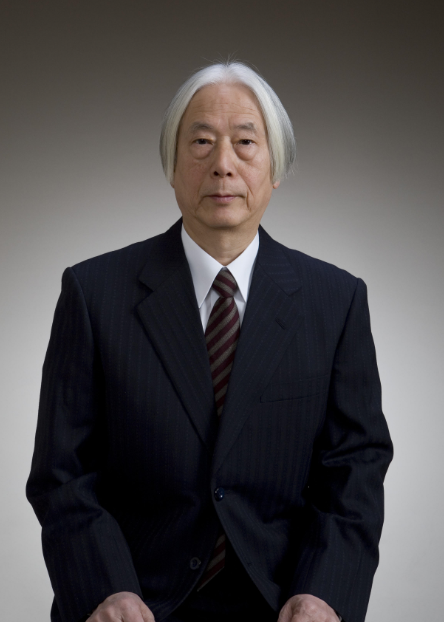館長メッセージ
ご挨拶

国立ハンセン病資料館
館長 内田 博文
このたび、成田稔先生のご勇退に伴い、令和3年7月1日付けをもって、国立ハンセン病資料館の館長に就任させていただくことになりました。身に余る重責ではございますが、これまでハンセン病問題に多少関わらせていただきました経験を踏まえて、精一杯の努力をしてまいる所存でございます。皆様方には、前館長と同様、ご指導ご鞭撻を賜りますよう、何とぞよろしくお願い申し上げます。
人間よりも強い動物は少なくありません。弱い人間がここまで発展してきたのは、人間が社会生活を営んできたからだとも思われます。人間は社会的動物といわれる所以です。この社会生活にとって何よりも肝要なことは、自他の人権の尊重ではないかと存じます。
1789年のフランス人権宣言は、「人および市民の権利」という形で、世界ではじめて近代的な人権を謳いました。その世界史的な意義は大きなものがあります。しかし、実際には、権利保障の対象は限定されていました。女性、子ども、障がい者、外国人などの方々は除外されていました。これらの方たちの人権をいかに保障するか。これがその後の人権の発展をもたらす大きな要因となりました。
フランス人権宣言は、自由権と平等権の保障が主な内容で、生存権についてはまだ認識がありませんでした。生存権が人権と認識されるのは、20世紀に入ってからのことです。1919年に制定されたドイツのワイマール憲法で初めて謳われました。その第151条は、「経済生活の秩序は、すべての者に人間たるに値する生活を保障する目的をもつ正義の原則に適合しなければならない」と明記しました。この社会権は、第二次世界大戦後、多くの国々の憲法で導入されることになりました。
第二次世界大戦後、国際連合が組織されました。国際連合が、二度にわたる世界大戦への反省から、第3次世界大戦を阻止するために最初に取り組んだといってもよいのが、人権の国際化でした。1948年の第3回国連総会で世界人権宣言が採択されました。その前文は、「すべての人民とすべての国とが達成すべき共通の基準として、この世界人権宣言を公布する。」と明示し、人権の尊重をもって、すべての国のすべての人が守るべき共通の準則としています。人権問題は戦後世界にとって最重要の国際問題となっています。
21世紀の人権は、20世紀までの人権と異なり、「当事者による当事者のための当事者の人権」とされています。障害者権利条約も、この当事者主権に基づいて、従来の「障害」概念について、パラダイムの転換を図りました。従来は、例えば、目が見えない、耳が聞こえない、歩けないということが「障害」とされてきました。いわゆる医学モデルの考え方です。しかし、たとえ、目が見えなくても、耳が聞こえなくても、歩けなくても、社会の側からの「合理的な配慮」があれば社会参加する上で何ら支障はない。合理的な配慮がないから社会参加できないだけである。障害は当事者にあるのではなく、社会の側にある。障害者権利条約は、このように、パラダイムを転換しました。社会モデルという考え方を採用しました。歩行健常者は階段があれば2階に上がることができるが、歩行障がい者は階段では2階に上がることはできない。しかし、エレベーターがあれば2階に上がることはできる。こういう考え方です。
ハンセン病問題基本法でも、その第6条で、「国は、ハンセン病問題に関する施策の策定及び実施に当たっては、ハンセン病の患者で あった者等その他の関係者との協議の場を設ける等これらの者の意見を反映させるために 必要な措置を講ずるものとする。」と規定しています。
国立ハンセン病資料館の役割は極めて大きなものがあり、さらに高まっていくものと思われます。当事者の方はもとより、各方面からも多岐にわたる、様々なお声が寄せられております。資料館の発展にとって、いわば糧ともいうべきものです。
人類は、数々の過ちを繰り返してきましたが、その過ちを教訓にし、この教訓をルール化し、文明の幹とすることによって成長してきました。教訓のバトンタッチは、人類の成長を保障する最大の仕組みだといっても過言ではありません。当資料館が担うのも、この教訓のバトンタッチという役割ではないかと存じます。
資料館は、広場だといってもよいのではないでしょうか。当事者の方々が、国の誤ったハンセン病強制隔離政策の中で、「人生被害」と譬えらえれるような深甚な被害を受けられたこと、そして、誤った政策を変えるべく、「人間回復」を図るべく勇敢にたたかわれたこと、その真実、その生活、そのメッセージを当事者の方からご教示いただき、そして時には聞き取りをさせていただき、資料館という広場を通じて、多くの国民、市民に伝達していく。バトンを受け取ってもらうようにしていく。次のランナーになっていただくようにしていく。
このバトンタッチにとって何よりも大切なことは、聞く力と、話す力ではないでしょうか。館員一同、力を合わせて、この聞く力と話す力を高め、資料館の広場機能を充実させていくことができればと存じます。
最後に、改めて、ご指導ご鞭撻を賜りますよう、よろしくお願い申し上げまして、館長就任のご挨拶とさせていただきます。
